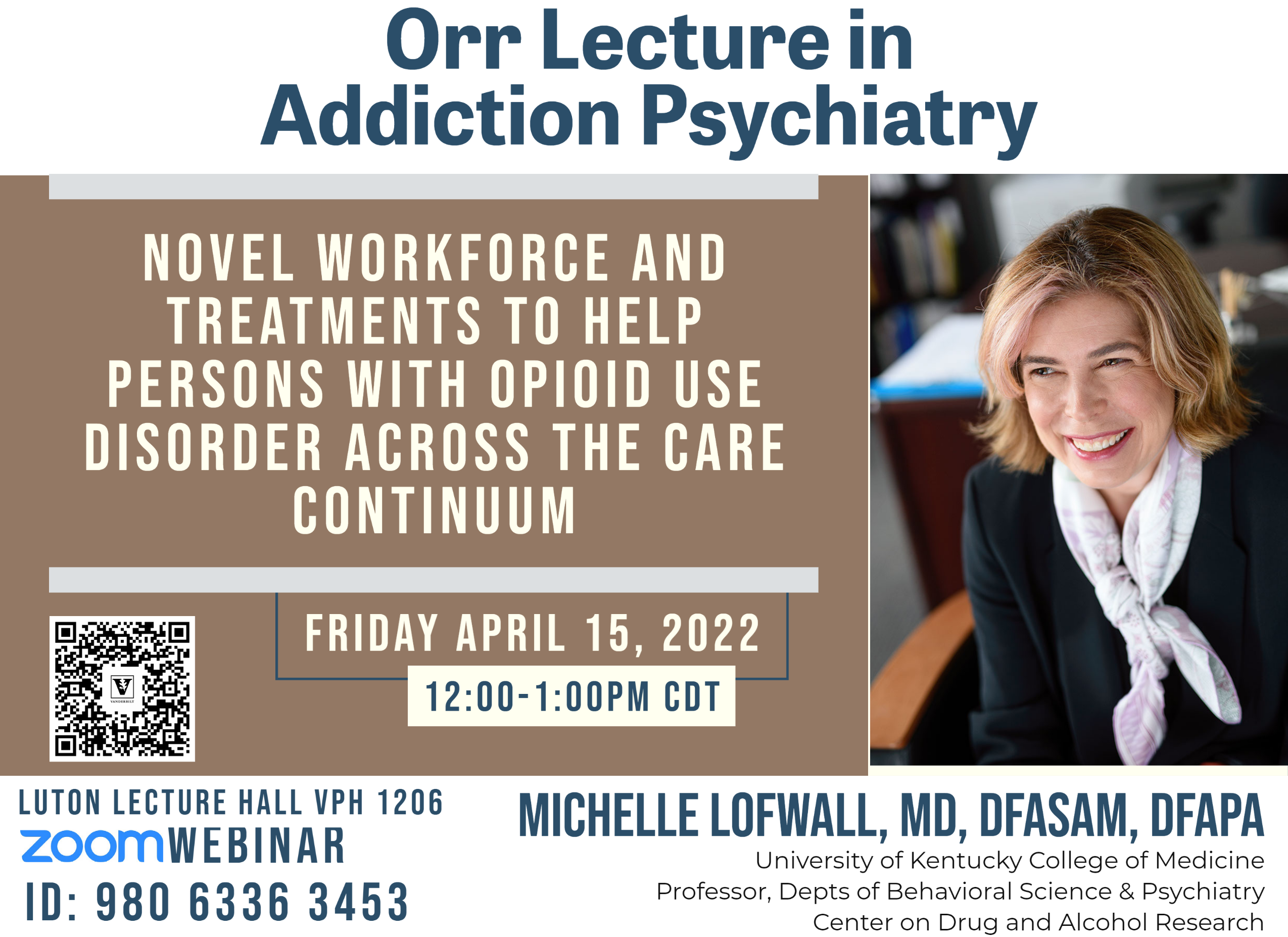
"Novel Workforce and Treatments to Help Persons with Opioid Use Disorder Across the Care Continuum"
Michelle Lofwall, MD
Dr. Michelle Lofwall, board certified in psychiatry and addiction medicine, is a Professor in the Departments of Behavioral Science and Psychiatry and the Bell Alcohol and Addictions Endowed Chair at the University of Kentucky (UK). She received her bachelors degree from Northwestern University in Psychology and her MD and Master's degree in Pathology from Chicago Medical School. She completed internship, psychiatry residency and a fellowship in behavioral pharmacology from Johns Hopkins University. Currently, she is the medical director of UK’s Robert Straus and First Bridge Clinics, which provide comprehensive opioid use disorder (OUD) treatment within the UK Center on Drug and Alcohol Research.
Her passion is in improving the care of patients with addiction, and her research has included evaluation of novel treatments for opioid use disorder (e.g., buprenorphine implants and depot injections), physician training, understanding factors associated with buprenorphine diversion, and improving care of complex patients with OUD and deep-seated infections. She was elected as a Distinguished Fellow of American Society of Addiction Medicine (ASAM) and the American Psychiatric Association, is a past ASAM board member and co-director of the American Academy of Addiction Psychiatry’s annual addiction treatment review course. She has received numerous teaching and mentoring awards and was an expert panel member for SAMHSA’s Treatment Improvement Protocol on Medication Treatment for Opioid Use Disorder and invited speaker to the National Academy of Medicine.
Abstract
There are growing unmet needs for persons living with opioid use disorder (OUD) along the care continuum. This talk addresses how long-acting injectable buprenorphine along with two ongoing studies evaluating novel workforces to help link and retain persons in OUD treatment and an integrated addiction and infectious disease transitional care model may help meet some of these complex needs.
Objectives
The activity is designed to help learners
- Describe two current gaps in the care continuum for opioid use disorder treatment
- Discuss two goals of the peer support and nurse/social worker linkage and retention programs
- Explain the rationale for developing an outpatient transitional care model integrating addiction and infectious disease treatment

This talk is sponsored by the Orr Lecture Fund. Department of Psychiatry and Behavioral Sciences. This educational activity received no commercial support.